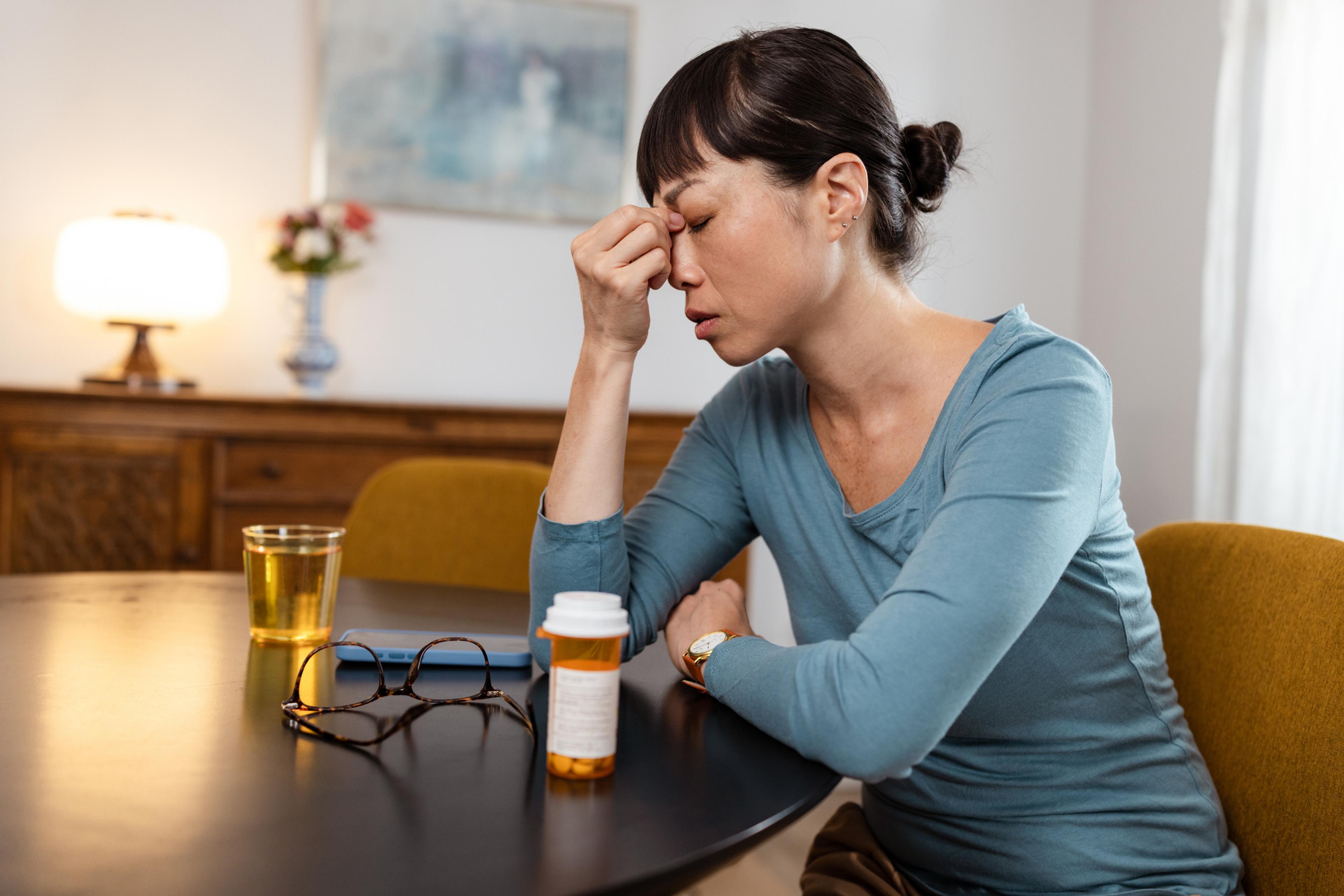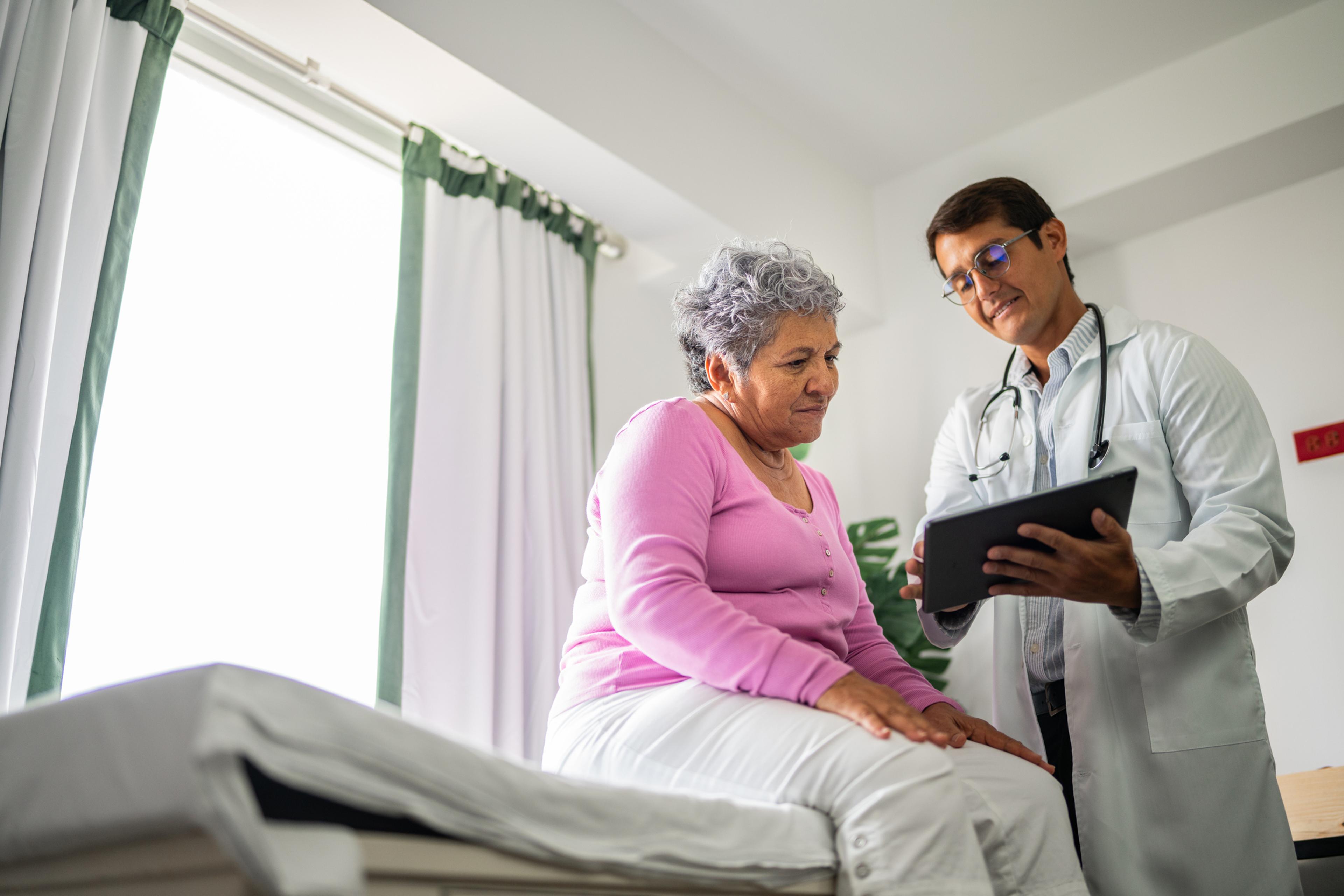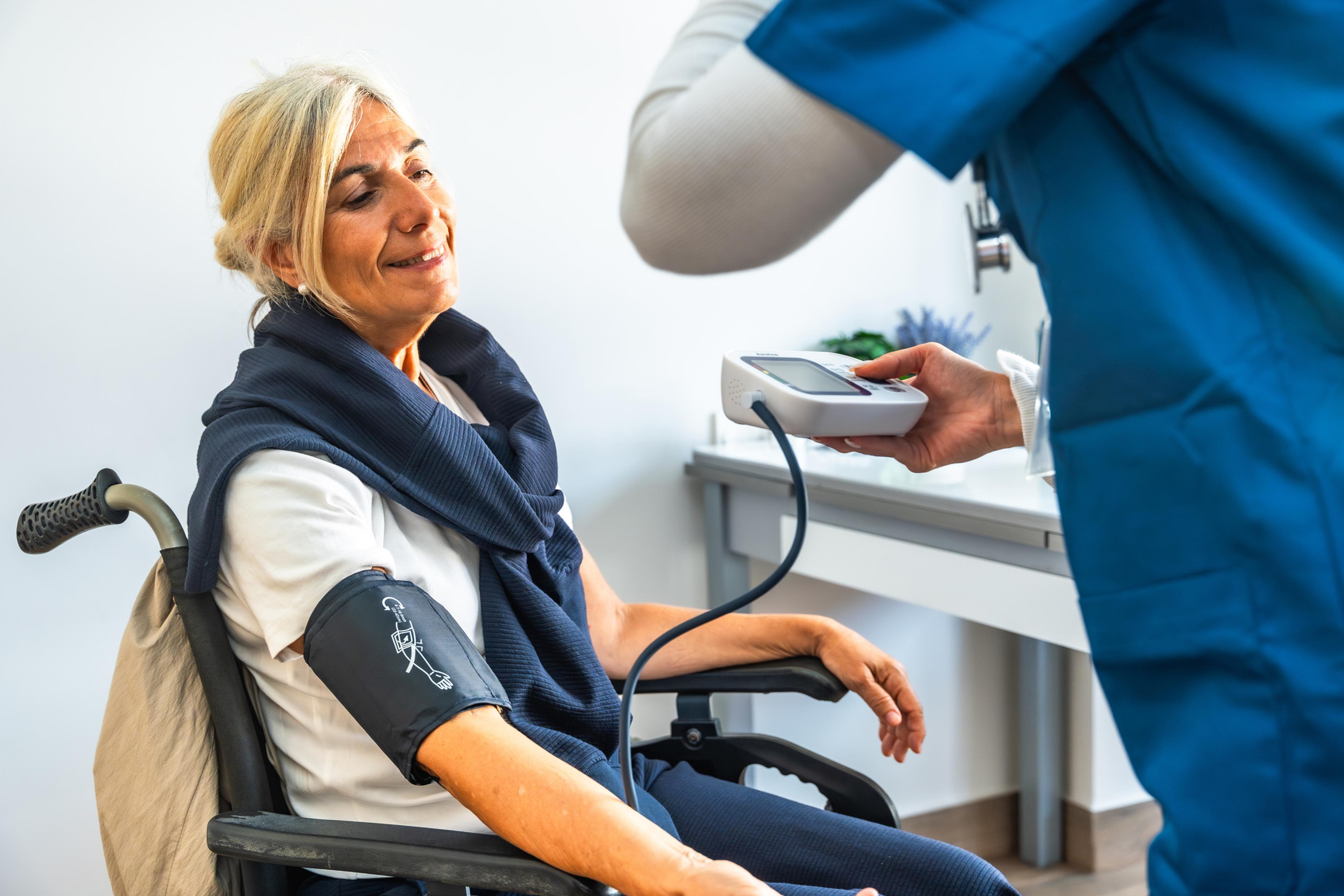Tools for Migraine Management
Dr. Crystal Lee, M.D.
| 4 min read
Crystal R. Lee, MD, FACP, CPC-A, CHCQM is a Medical ...

Key Takeaways
- A migraine is a severe headache that causes throbbing pain, nausea, vomiting and extreme sensitivity to sound and light.
- Common migraine triggers include stress, physical activity and sensory stimuli, while less common triggers may include hormonal changes, family history and certain medications.
- While over-the-counter medications and home remedies can provide relief, prescription medications and preventative measures like maintaining a healthy lifestyle can also help manage and prevent migraines.
More than 39 million Americans live with migraines. A migraine is a severe headache that causes throbbing pain, nausea, vomiting and extreme sensitivity to sound and light. Migraines can have four stages, although not everyone will experience all of them:
- Prodrome: Physical changes that can warn of an approaching migraine, including mood changes, neck stiffness and appetite changes.
- Aura: Visual disturbances, weakness and tingling sensations that can last for up to an hour.
- Attack: The severe pain that lasts from a few hours to a few days if untreated.
- Post-drome: A feeling of fatigue and drain for a day or so after the attack.
Surprising and overlooked migraine triggers
There are many different causes for migraines, and triggers can be different for each person. Common causes of migraines include:
- Stress
- Intense physical activity
- Weather and barometric pressure changes
- Missing sleep
- Missing meals
- Alcohol
- Caffeine
Less common causes of migraines include:
- Family history: While anyone can have an occasional migraine, most people who experience frequent migraines have a relative who also suffers from migraines.
- Sensory stimuli: Loud sounds, strong smells and flashing or bright lights, including computer and phone screens, can cause migraines.
- Hormonal changes: Estrogen fluctuations, such as before or during menstrual periods, pregnancy and menopause are common causes of migraines. Women are also significantly more likely than men to have migraines; about 21% of women and 10.7% of men experience severe headaches, according to the American Migraine Foundation.
- Medications: Drugs such as nitroglycerin and oral contraceptives can contribute to migraines. Some women, however, find hormonal contraceptives reduce the occurrence of migraines.
Migraine treatment trends
As with many other health conditions, social media trends have popped up and promised fast relief for migraines. One TikTok trend recommends a person soaks their feet in hot water.
There is limited research to back this claim. A 2016 study of 40 people found hydrotherapy in addition to taking common pain relievers reduced headaches. The study showed a decrease in self-reported migraine symptoms and frequency in the 20 participants who soaked their arms and legs in hot water for 20 minutes and had ice massaged on their head for five minutes, five days a week for six weeks. The researchers did not determine why hydrotherapy had that effect, and the research pool was small.
More research is needed to determine whether this remedy is effective. It is a low-risk option to try in addition to medication and other home remedies. Those with heart conditions or neuropathy in their feet should talk to their primary care provider (PCP) before trying a hot water soak.
Effective migraine relief
Over-the-counter medications for migraines include acetaminophen, ibuprofen or a combination of the two with caffeine. The combination of drugs can cause rebound headaches for some, especially those who have frequent migraines. While caffeine can help relieve migraines in some people, it can be a cause for others.
There are prescription medications and treatments available to treat and prevent migraines, such as:
- Triptans
- Calcitonin gene-related peptide (CGRP) antagonists
- Ergots
- Beta blockers
- Botox
- CGRP inhibitors
At home remedies for migraine relief include:
- Dim the lights and lie down in a quiet room
- Apply a cold compress to the head for 15 minutes at a time
- Apply a heating pad to the neck and shoulders to relieve muscle tension
- Massage, especially to the neck, shoulders and back
To prevent migraines, people should make note of their triggers and avoid them as much as possible. Eating a healthy diet, staying hydrated, getting enough sleep and exercising regularly can also help prevent migraines.
Those who struggle with chronic migraines should talk to their (PCP) about medications and remedies. Finding the right treatment may involve trial and error.
Dr. Crystal Lee, M.D., FACP, CPC, CHQM, is a medical director of Clinical Decision Support at Blue Cross Blue Shield of Michigan. For more health tips and information, visit MIBlueDaily.com.
Image: Getty Images
Related:





